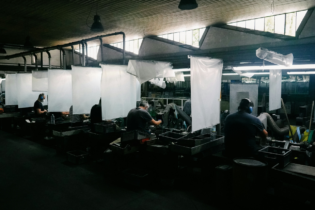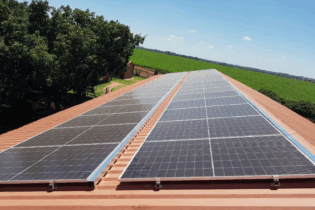Earth Day on 22 April is an annual global event to raise awareness and support for environmental protection. While the detrimental effects that greenhouse gas emissions have on our planet are widely recognised, not enough is known about the significant impact of food waste on the environment.
An estimated one-third of all the food produced in the world goes to waste, equating to over 1.3 billion tons of fruits, vegetables, meat, dairy, seafood, and grains that either never reaches distribution, or is lost, spoiled or thrown away. Discarded into landfills worldwide, this not only takes up valuable land, but also decomposes, releasing methane into the atmosphere —a greenhouse gas even more potent than carbon dioxide. Food waste is responsible for approximately 8% of global greenhouse gas emissions, and is a substantial contributor to climate change. Climate change is the greatest challenge to sustainable development, with its effects already evident worldwide. The United Nations states that to limit global warming to 1.5°C, emissions will need to peak as soon as possible, followed by rapid reductions. These emissions will need to fall by a staggering 45 per cent by 2030 and continue at a steep decline in order to achieve net zero emissions by 2050, a vital sustainable development goal. While concerted efforts are needed globally to reduce our dependance on fossil fuels, these greenhouse gas emissions could be reduced significantly if we simply stopped wasting food. As the earth’s population grows, our challenge should not be how to produce more food, but to feed more vulnerable people while wasting less of what we already produce, especially given that over 800 million people are affected by hunger globally.This is exactly the mission of FoodForward SA, which is connecting a world of excess to a world of need by recovering quality edible surplus food from farmers, manufacturers, wholesalers and retailers, and transporting it to warehouses for storage and subsequent redistribution to local NPOs.
As the largest food-distribution non-profit organisation on the continent, FoodForward SA has seen its commitment to fighting hunger in South Africa reduce greenhouse-gas emissions by a staggering 113 152 tonnes in the last year alone, while enabling more than 920 000 beneficiaries to access food daily. For every tonne of food that FoodForward SA recover, 5.2 tonnes of greenhouse emissions are saved. This equates to the emissions of more than 88 000 passenger vehicles in a year. “These results showcase the power of collective action in combating climate change. As communities worldwide grapple with the challenges posed by climate change, this milestone not only underscores our commitment to sustainability, but also signifies a crucial stride towards a greener, more environmentally-conscious future for generations to come,” says FoodForward SA Managing Director Andy Du Plessis. According to the World Wildlife Fund, everyone can play their part in reducing food waste. This includes freezing food to be eaten at a later date, planning ahead and only buying what is needed, and using fruit and vegetable scraps for composting.






